We live in a world where it's become customary to push boundaries, break rules, and question standards upheld by society. Though try as we might, some of these standards are harder to conquer than others — body image is one of the top contenders.
For years, the body positivity movement has pushed for the acceptance of all marginalized body types not represented or celebrated in the media. Recently, we've gotten better at appreciating and accepting all body types, but one thing that's still lingering is the stigma of body image in the fashion industry — more specifically, the term "plus-size."
To gain more insight on the matter, I asked a series of questions that pertained to what 46 women of all ages and body types thought about the term "plus-size." Here's what they had to say.
First, the age range of the survey.

Jordyn Leach, Survey Results
This is something that affects girls and women of all ages, so the wide age range of participants was expected. The participants were between 16 and 69 years old, with the most prominent amount of women being in their early to late 20s. As you can see, this can be perceived as a hot topic that encompasses multiple generations, from baby boomers to Generation Z.
What kind of connotation do you think the term "plus-size" has?
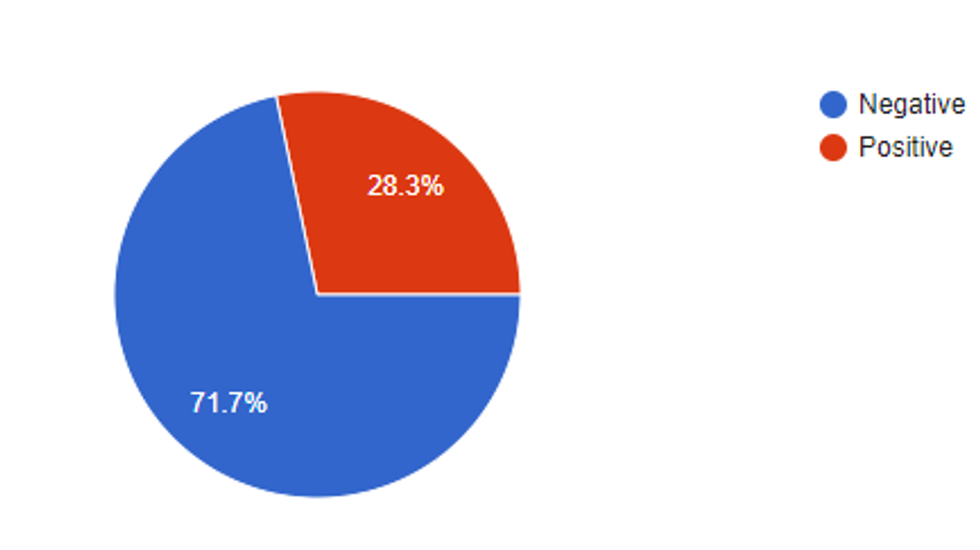
Jordyn Leach, Survey Results
I think that this data speaks for itself. When we hear "plus-size," we normally don't associate it with something positive unless it's a party pack of our favorite snack foods.
In the fashion industry, "plus-size" includes anything above the "straight" sizes, which generally cap at 14. Likewise, in the modeling industry, "plus-size" is recognized as anything higher than 6-8, depending on where you look.
I asked the participants to explain their answer, negative or positive, in a follow-up question and 48 percent expressed that "plus-size" doesn't sound appealing. 19 percent mentioned that "plus-size" can be interpreted as something separate from the "norm" that society has set. 30 percent expressed that they understand why "plus-size" is used, especially compared to other less appealing options, but that it still segregates curvy or well-endowed women in the public eye.
11 percent expressed that because they love their body type, "plus-size" simply helps them find their clothes faster.
9 percent of the participants pointed out an important fact — health and size are not the same thing. You can be voluptuous with thick thighs and a slim waist (much like Marilyn Monroe), muscular with tone and definition, or somewhere in the middle all while being as healthy as a horse, and you can still fall into the "plus-size" category because of outdated sizing systems.
Do you think "plus-size" borders on fat shaming?
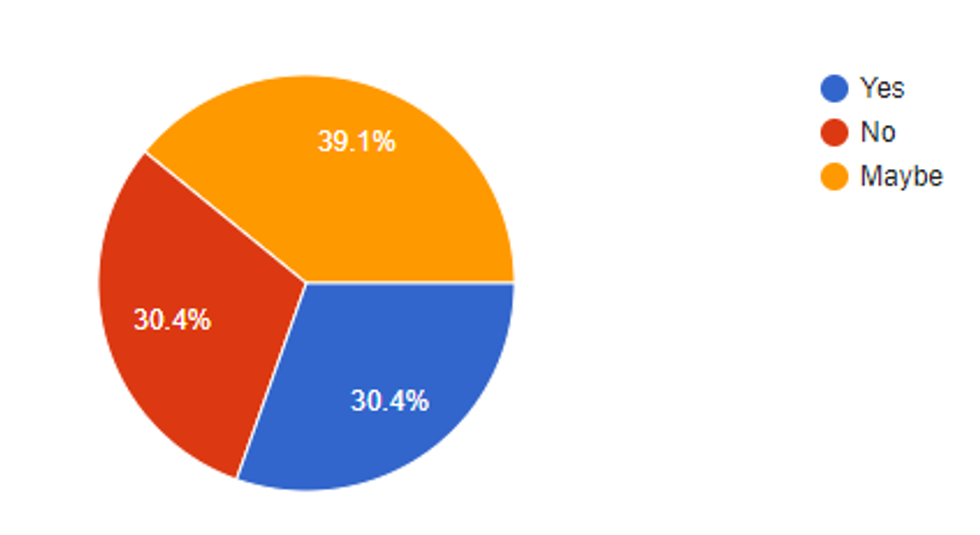
Jordyn Leach, Survey Results
I found it interesting that the results of this question were almost an even split.
But first, I would like to add some context as to why this question was included. Though this could be something easily interpreted from the term standing alone, there was a story back in 2016 of a boyfriend trying to make a point that women's clothing is built on body shaming and sexism (which will be addressed later) by trying on his girlfriend's clothes before she threw them out. In his statements, he expressed obvious frustration.
"I am not an extra large man, and more importantly, a woman my size is NOT an extra large woman."
"I'm fitting in something that tells a woman she's and extra large and it's ridiculous."
"My point wasn't about the sizes. It's about the disparity in sizing between men and women. The fact that I got into both a men's small and a woman's extra large is straight up sexism. Body shaming sexism.
When I asked a follow-up question requesting that participants to go more in-depth, that's when things became more clear. 39 percent mentioned that "plus-size" categorizes women in a different and less appealing sounding way that is different than the "desired" and outdated norm.
24 percent mentioned that fat-shaming is unacceptable, but contradicted themselves by fat-shaming in the next breath.
The fact that there are men, like the one in the news story, willing to speak up about the issue is inspiring. There's still a long way to go but progress is progress nonetheless, as we've seen slowly but surely with the body positivity movement.
Do you have to shop in the "plus-size" section of the store?
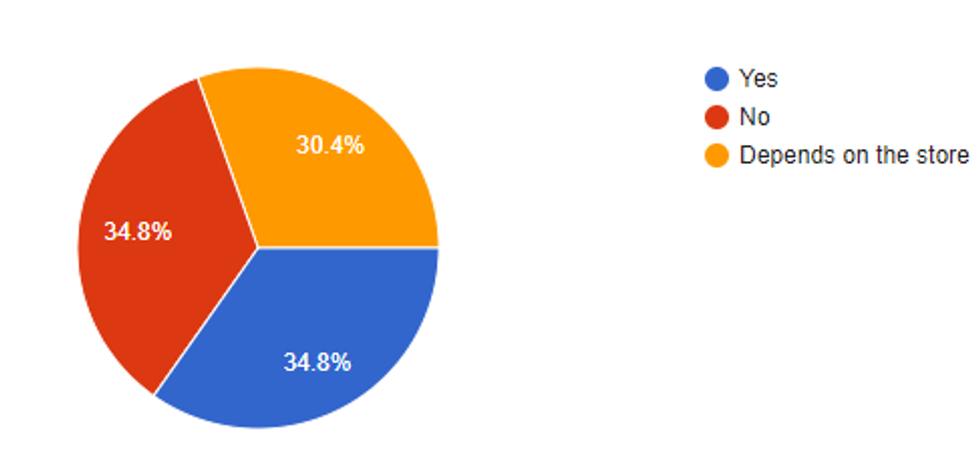
Jordyn Leach, Survey Results
We all know that sizes can be weird and this data helped reflect that. At one store, you may be a size 10-12 but at another, you're a 14-16. Most of the time, it depends on the store (or brand) and that was expressed by nearly a third of the participants.
If anything, this exposes the problems and inconsistencies of how measurements are translated into categories of clothing. According to Today, brands actually created their own sizing systems in the past and represent who their "core customer" is the most.
This video from Vox also gives a background as to why the current size system is structured how it is.
To a certain point, this makes sense but the inconsistencies across the board make it difficult for women with different body types to go clothes shopping.
If the term applies to you, do you feel like it marginalizes you when you're shopping?
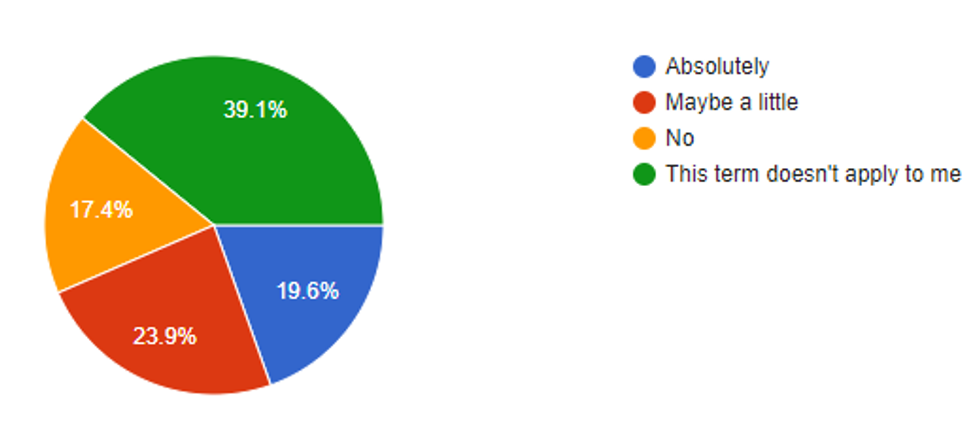
Jordyn Leach, Survey Results
This question was helpful for two reasons — to establish that there are multiple participants that have varying body types, and to find out how many women feel as if they're an outsider, or even insignificant when they're shopping.
While most stores do have a designated "plus-size" section or options starting at 14-16, some popular stores for women do not provide sizes greater than 14, which is the end of "straight" sizes.
I asked a question prior to this one, "Do you like going clothes shopping?" and 54 percent of the participants mentioned that finding the right size and fit was a struggle regardless of their body type. 11 percent mentioned that staring and judgment from other shoppers affect their shopping experience in a negative way.
Shopping can be difficult and taxing, no matter your body type. There's no need for stores (and their inconsistent sizing systems) to contribute to that.
Just think of how much their sales would increase if stores were more inclusive of their sizes.
Do you think the term "plus-size" can be considered sexist?
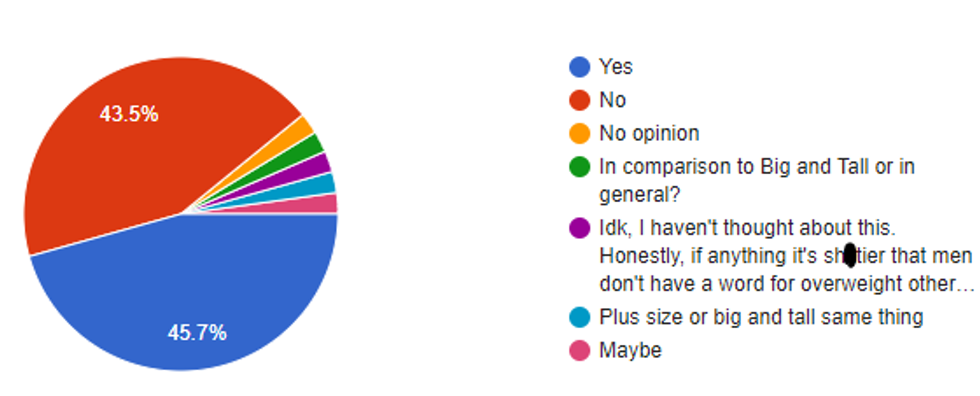
Jordyn Leach, Survey Results
The opinions for this question were pretty split, with the exception of additional input.
We've seen a history of societal expectations between women and men being enforced with double standards. In other words, what is seen as a negative thing for women is a positive thing for men — a prime example being an active sex life. Where men are praised for being "the man" for having a high body count, women are dubbed as sluts or being promiscuous. Though sizes in the fashion industry are a separate thing altogether, it's the same concept. That being said, I felt that this would be a beneficial addition to the survey.
As you can see in the data, the phrase "big and tall" was mentioned. In a follow-up question, I asked the participants to explain their answers.
33 percent mentioned that instead of a "plus-size" section, it's most commonly seen and known as "big and tall." 22 percent mentioned that sometimes "big and tall" isn't specified and that there's just a general men's department that has a multitude of sizes encompassing all body types. 47 percent mentioned that no matter what the men's department is or isn't divided into, the women's department almost always has a section specifically for "plus-size."
This way, we can conclude from the "yes" votes and the write-ins, that the double standard is very much alive with clothing sizes and how they may be presented in a store. Nine times out of ten, women get the short, less appealing end of the stick.
I'll leave the judgment up to you — which sounds more appealing? "Big and tall" or "plus-size"?
New studies conclude that the average size for American women is 16-18, but this is considered "plus-size." Do you feel that stores should evolve and categorize clothing differently to fit the average?
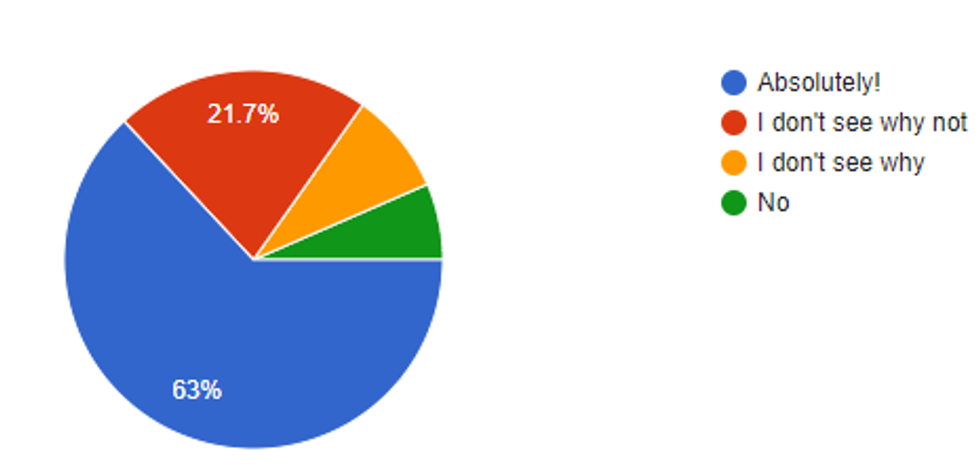
Jordyn Leach, Survey Results
The data for this question was pleasantly surprising. Yes, we live in a world where things are constantly changing and evolving but I have to admit, I was skeptical that it would have a positive outcome. I'm glad that the majority of participants are on board with the idea that our stores need to evolve as well — not only with their sizing systems, but what they categorize clothing as.
The study in question can be found here, although I'm sure there are countless others that can be found to support the conclusion that the average clothing size for American women is 16-18.
Although this survey gave us some insight on this topic, the conversation doesn't stop with these 46 women. It's an ongoing uphill battle of body image acceptance and inclusivity in the fashion industry.
It's 2020, where change is inevitable and norms are not only questioned, but challenged. The question is, is society ready for that?






















